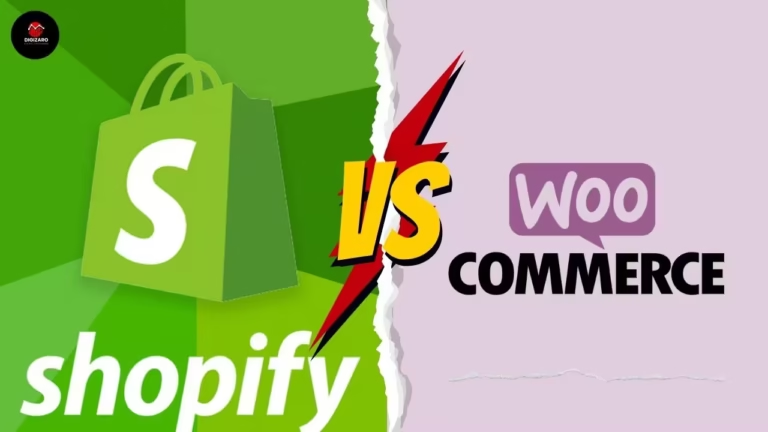The Role of SEO in Growing Restaurants & Cafes in Glasgow (From Someone Who’s Actually Done It)
The Day I Realized Glasgow Restaurants Live or Die by Google
So picture this: I’m sitting in Singl-end in Merchant City, scrolling through my phone looking for somewhere new to eat tonight. Within 30 seconds, I’d found three restaurants, checked their reviews, looked at their menus, and made a reservation – all without leaving Google.
That’s when it hit me. Every single decision I’d just made was influenced by how these restaurants showed up online. The one with photos that made me hungry, the one with 4.5 stars and recent reviews, the one that made booking dead easy.
My mate Emma runs a brilliant wee café called The Daily Grind (not the real name) in Finnieston. Amazing food, lovely atmosphere, but she was pulling her hair out because tables were half-empty most days. Meanwhile, the mediocre chain place down the street was packed.
“People just don’t know we exist,” she told me over coffee. “We’ve got no marketing budget, but I don’t understand why we’re invisible online.”
That conversation changed everything for her business. Within six months of fixing her online presence, she went from worrying about paying rent to turning away customers on weekends.
Here’s exactly how she did it – and why every restaurant and café in Glasgow needs to understand this stuff.
Why SEO Is Make-or-Break for Glasgow Restaurants Right Now
About 46% of all Google searches are local searches, and if you think about how people choose where to eat, this makes perfect sense. Nobody’s searching “restaurants worldwide” – they’re searching “best Italian near me” or “Glasgow breakfast spots” or “where to eat in Merchant City.”
Glasgow’s food scene is absolutely thriving – we’ve got two Michelin-starred restaurants now, with more getting recognition every year. But here’s the thing: all that competition means standing out is harder than ever.
I’ve watched brilliant Glasgow restaurants fail not because their food was bad, but because they were invisible when people searched for places to eat. And I’ve seen average places thrive because they understood how to show up in Google searches.
The numbers don’t lie. About 78% of people searching for local businesses on mobile actually visit or call within 24 hours. For restaurants, that’s pure gold – someone searching “dinner Glasgow” tonight is probably eating somewhere tonight.
But here’s what most restaurant owners don’t realize: showing up in those searches isn’t about luck or spending loads on ads. It’s about understanding how local SEO works and doing the basics right.
What Actually Happens When Someone Looks for Food in Glasgow
Let me walk you through exactly what happens when someone searches for restaurants in Glasgow – because understanding this process is crucial for getting your place noticed.
The Google Search
Someone types “Italian restaurant Glasgow” or “brunch West End” into their phone. Google immediately shows them a map with three restaurants at the top (the “local pack”), followed by regular search results and probably some ads.
Most people never scroll past that first page. If you’re not in that top section, you might as well not exist.
The Google My Business Check
They click on a restaurant that looks interesting. First thing they see is your Google My Business profile – photos, reviews, opening times, menu link. They’re making split-second decisions based on:
- How recent your photos are
- Your star rating and review count
- Whether your menu looks appealing
- If you’re actually open right now
The Website Visit (Maybe)
If you’ve survived the GMB check, they might visit your actual website. They want to see:
- Your current menu with prices
- Easy booking system or phone number
- Location and parking info
- What makes you special
The Decision
Within about 2 minutes, they’ve either made a reservation, called you, or moved on to the next place. It’s brutal, but that’s the reality of how people choose restaurants today.
Emma’s Transformation: From Empty Tables to Fully Booked
Let me tell you exactly what Emma did to transform her café, because it’s a perfect case study in Glasgow restaurant SEO.
Month 1: Getting the Basics Right
Claimed and Optimized Google My Business Emma’s café had a Google listing, but it was a mess. Wrong opening hours, one blurry photo from 2019, no menu link. We updated everything: correct hours, phone number, booking links, and proper photos of the food and space.
Professional Food Photography This made the biggest immediate difference. Emma hired a local food photographer for £300 and got 20 brilliant shots of her dishes, the café interior, and happy customers. The difference in click-through rates was mental.
Category Optimization Made sure she was listed in the right categories – “café,” “breakfast restaurant,” “coffee shop” – so she’d appear for different types of searches.
Month 2: Content and Reviews
Started a Simple Blog Emma began writing about local ingredients, seasonal specials, and Glasgow food culture. Nothing fancy, just authentic content that helped people discover her café when searching for Glasgow food topics.
Review Generation Strategy Instead of begging for reviews, she focused on giving people amazing experiences worth reviewing. She also started gently asking happy customers to leave reviews – not with incentives, just genuine requests.
Local Keyword Focus Optimized her website for terms like “breakfast Finnieston,” “specialty coffee Glasgow,” and “independent café West End.” These might seem obvious, but her site wasn’t targeting them before.
Month 3-6: Building Local Presence
Local Directory Listings Got listed on local food blogs, Glasgow restaurant directories, and community Facebook groups. Each listing helped Google understand that she was a legitimate local business.
Community Engagement Started participating in local food events, partnering with nearby businesses, and engaging with Glasgow food bloggers. This built genuine local connections that translated into online visibility.
Social Media Integration Connected her Instagram and Facebook properly to her Google listing. Regular posts about daily specials and behind-the-scenes content kept her profile active.
The Results
By month six:
- Google searches for “café Finnieston” showed her in the top 3
- Weekend bookings went from 30% capacity to fully booked
- Weekday lunch traffic increased by 80%
- Online orders doubled
- Most importantly: she was profitable and could afford to hire extra staff
The best part? Her total investment was under £2,000 for photography, website improvements, and a bit of help with the technical stuff.
The Glasgow Restaurant SEO Playbook That Actually Works
Step 1: Master Your Google My Business Profile
This is your shopfront on Google. People will judge your restaurant based on your GMB profile before they ever visit, so get this right:
Complete Everything
- Accurate address, phone, hours
- Menu link or upload menu photos
- Booking system integration
- All relevant categories
- Service options (delivery, takeaway, dine-in)
Photos That Sell
- Professional food photos (worth every penny)
- Interior shots that show atmosphere
- Happy customers (with permission)
- Team photos to show personality
- Updated regularly – no photos from 2019
Keep It Current
- Post weekly updates about specials
- Share behind-the-scenes content
- Respond to all reviews professionally
- Update hours for holidays immediately
Step 2: Target Glasgow-Specific Keywords
Don’t try to rank for “best restaurant” – that’s impossible. Focus on what people in Glasgow actually search for:
Location-Based Keywords
- “Restaurant [Glasgow neighborhood]”
- “Dinner Merchant City”
- “Breakfast West End”
- “Lunch Finnieston”
Food Type + Location
- “Italian restaurant Glasgow”
- “Vegan café Glasgow”
- “Sunday roast Glasgow”
- “Seafood restaurant Glasgow”
Intent-Based Searches
- “Romantic dinner Glasgow”
- “Family restaurant Glasgow”
- “Quick lunch Glasgow”
- “Date night restaurant Glasgow”
Step 3: Build Real Local Connections
Google cares about genuine local relevance. Here’s how to build it:
Local Business Partnerships Partner with nearby shops, hotels, or entertainment venues. Cross-promote each other online.
Food Blogger Relationships Glasgow has brilliant food bloggers. Invite them to try your food (don’t pay them, just offer a genuine experience).
Community Involvement Participate in local food festivals, charity events, or community initiatives. This creates natural opportunities for local websites to mention you.
Local Supplier Mentions If you use local ingredients or suppliers, mention them on your website and social media. They might return the favor with links or mentions.
Step 4: Content That Actually Helps People
Don’t write generic restaurant content. Create stuff that helps Glasgow food lovers:
Seasonal Guides “Best Glasgow Restaurants for Burns Night” “Where to Eat During Glasgow International Festival” “Summer Dining with Outdoor Seating in Glasgow”
Local Food Culture “The Story Behind Our Scottish Suppliers” “Glasgow’s Coffee Culture: Our Take” “Traditional Scottish Dishes with a Modern Twist”
Practical Information “Parking Near Our Restaurant” “Glasgow Food Tours That Include Our Area” “Pre-Theatre Dining in Glasgow”
The Technical Stuff (That’s Actually Simple)
Website Essentials
Your website doesn’t need to be fancy, but it needs these basics:
Fast Loading People are hangry and impatient. If your site takes more than 3 seconds to load, they’re gone.
Mobile-Friendly Most people are browsing on phones. Your menu needs to be readable on a small screen.
Online Booking Make it dead easy to book a table. The fewer clicks, the better.
Current Menu with Prices Nothing’s more frustrating than finding a restaurant with no menu or outdated prices.
Contact Information Phone number, address, opening hours – all clearly visible and correct.
Schema Markup (Sounds Scary, Actually Easy)
This is code that tells Google exactly what your business is. Most website builders include this automatically, but make sure you have:
- Restaurant schema
- Local business schema
- Menu schema (if possible)
- Review schema
Don’t worry if this sounds technical – any decent web developer in Glasgow can sort this for a few hundred pounds.
Avoiding the Mistakes That Kill Glasgow Restaurants
Mistake 1: Ignoring Bad Reviews
Bad reviews happen. How you handle them matters more than the review itself. Respond professionally, offer to make things right, and show that you care about customer experience.
Mistake 2: Inconsistent Information
If your opening hours are different on Google, your website, and your door, Google gets confused and might not show you in searches. Keep everything consistent.
Mistake 3: No Local Focus
Don’t try to appeal to everyone everywhere. Focus on being the best [type of restaurant] in [your Glasgow area]. “Best Italian in Merchant City” is achievable. “Best Italian in Scotland” probably isn’t.
Mistake 4: Buying Fake Reviews
Don’t even think about it. Google’s getting better at spotting fake reviews, and getting caught will destroy your rankings. Focus on earning genuine reviews through great experiences.
Mistake 5: Set-and-Forget Mentality
SEO isn’t a one-time thing. Keep your content fresh, respond to reviews, post updates, and stay engaged with your community.
The Numbers: What Success Actually Looks Like
Here are realistic expectations for Glasgow restaurant SEO:
Month 1-3: Foundation Building
- GMB profile optimized and active
- Website fixed and mobile-friendly
- First local directory listings
- Basic review generation started
Month 4-6: Visibility Improvements
- Appearing in local pack for neighborhood searches
- Increased website traffic from Google
- More phone calls and online bookings
- Growing review count with good average rating
Month 7-12: Competitive Rankings
- Ranking for main local keywords
- Consistent visibility in map searches
- Strong online reputation
- Measurable increase in covers
Real ROI Expectations
- 20-40% increase in covers from online discovery
- 15-30% improvement in weekend bookings
- Better customer quality (people who found you online tend to spend more)
- Reduced reliance on expensive platforms like Deliveroo for discovery
The Glasgow Restaurant Scene Reality Check
Glasgow’s restaurant scene is more competitive than ever, with new places opening all the time. But that also means there’s a hungry audience actively searching for new places to try.
The restaurants that are thriving aren’t necessarily the ones with the best food (though that helps). They’re the ones that are easiest to find when people are looking for somewhere to eat.
I’ve seen amazing Glasgow restaurants struggle because they think good food is enough. It’s not. You need good food AND visibility.
But here’s the encouraging part: most restaurants in Glasgow are doing basic SEO badly or not at all. Get the basics right, and you’ll have a huge advantage.
Getting Started Without Getting Overwhelmed
Week 1: Audit Your Current Situation
- Google your restaurant name – what shows up?
- Search for restaurants in your area – where do you appear?
- Check your Google My Business profile – is everything correct and complete?
Week 2: Fix the Basics
- Update your GMB profile completely
- Make sure your website has current menus and contact info
- Get some decent photos taken
Week 3: Start Building
- Begin posting regular updates on GMB
- Ask happy customers for reviews (naturally, not desperately)
- Write your first piece of local content
Week 4: Plan Your Strategy
- Identify your main local keywords
- Plan your content calendar
- Set up systems for ongoing review management
Why This Matters More Than Ever for Glasgow Restaurants
The pandemic changed how people discover restaurants permanently. Even now, people research online before going out more than they used to.
Plus, with cost of living pressures, people are more selective about where they spend their money. They want to know a place is worth it before they book.
The restaurants that understand this and adapt are the ones that’ll thrive. The ones that ignore online presence are the ones struggling to fill tables.
Emma’s café is proof that this works. She went from struggling to profitable by understanding that online visibility drives real-world customers.
Your food might be brilliant, your service might be exceptional, but if people can’t find you when they’re looking for somewhere to eat, none of that matters.
The good news? This stuff isn’t rocket science. It just takes time, consistency, and understanding your local market.
Glasgow’s food scene is incredible, and there’s room for everyone to succeed. But you need to make sure people can actually find you first.






